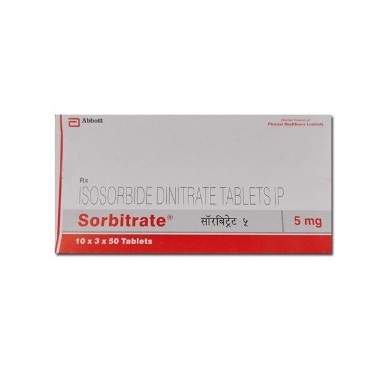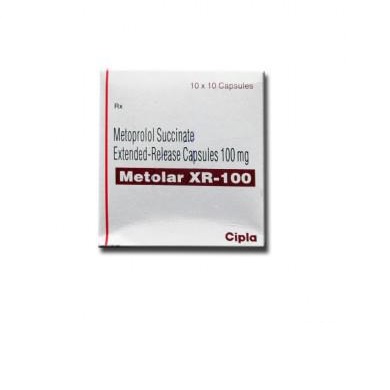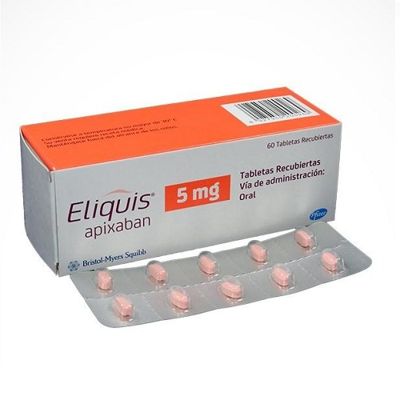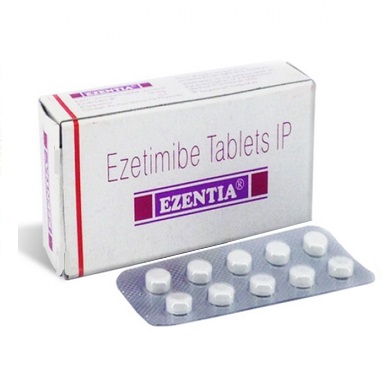Sorbitrate 5 mg
Sorbitrate 5 mg is a medication primarily used to treat angina (chest pain) and other heart-related conditions. It contains the active ingredient isosorbide dinitrate, which works by relaxing and widening blood vessels, improving blood flow to the heart. This reduces the heart's workload, helping to alleviate pain caused by insufficient oxygen supply to the heart muscles. Typically prescribed for those with coronary artery disease or heart failure, Sorbitrate helps prevent episodes of angina and manage chronic heart conditions.Uses
Sorbitrate 5 mg, which contains isosorbide dinitrate, is used to treat several heart-related conditions, including:
- Angina Pectoris: It is commonly prescribed to prevent and treat angina (chest pain) by improving blood flow to the heart muscle.
- Heart Failure: It helps relieve symptoms of heart failure by reducing the heart's workload and improving circulation.
- Coronary Artery Disease: Sorbitrate is used to manage symptoms of coronary artery disease by dilating blood vessels and reducing the heart's oxygen demand.
- Hypertension: In some cases, it may be used off-label for managing high blood pressure, although this is less common.
How to use it ?
orbitrate 5 mg is typically taken as a tablet. Here's how to use it:
Dosage: The exact dosage will be determined by your doctor, but it is commonly taken once or twice daily. It’s essential to follow your healthcare provider's instructions carefully regarding the frequency and timing of the doses.
Administration: Take the tablet orally with a glass of water. You can take it with or without food, but try to take it at the same time each day to help remember.
Avoid Crushing or Chewing: Do not crush or chew the tablet. Swallow it whole to ensure proper absorption.
Missed Dose: If you miss a dose, take it as soon as you remember, unless it’s almost time for the next dose. Do not double the dose to make up for a missed one.
Discontinue Use: Do not stop taking Sorbitrate abruptly without consulting your doctor, as this could lead to an increase in angina or other heart-related issues.
How dose it works ?
Sorbitrate (isosorbide dinitrate) works by relaxing and widening the blood vessels, which improves blood flow throughout the body. Here’s how it works in detail:
Vasodilation: Isosorbide dinitrate is a nitrate, which, when it enters the body, is converted into nitric oxide. Nitric oxide is a powerful vasodilator, meaning it helps relax the smooth muscles of blood vessels, causing them to widen (dilate). This reduces the resistance the heart must overcome to pump blood.
Improved Blood Flow: By dilating blood vessels, Sorbitrate increases blood flow to the heart, ensuring that it gets more oxygen-rich blood. This helps to relieve chest pain (angina) caused by insufficient oxygen supply to the heart muscle.
Reduced Heart's Workload: Sorbitrate also reduces the amount of blood returning to the heart (venous return), which lowers the heart's workload. This makes it easier for the heart to pump and reduces the amount of oxygen it needs, preventing angina episodes.
Preventing Angina: By improving circulation and reducing the heart's oxygen demand, Sorbitrate helps prevent angina attacks and relieves symptoms of coronary artery disease or heart failure.
Doses
The dosage of Sorbitrate 5 mg (isosorbide dinitrate) can vary based on the specific condition being treated, the patient's medical history, and the healthcare provider’s recommendations. However, general guidelines for its use are as follows:
Angina Pectoris (Chest Pain):
- Initial dose: Typically, 5 mg taken 2 to 3 times daily.
- The dosage can be increased gradually by the doctor, depending on how well the patient responds to the treatment.
- Maintenance dose: Commonly, the dosage is between 5 mg and 20 mg, taken 2 to 3 times per day.
Heart Failure:
- Initial dose: Usually 5 mg taken twice daily.
- Maintenance dose: The dose may be gradually increased, often up to 10 mg to 20 mg, taken 2 to 3 times daily, depending on patient response.
Benefits
Sorbitrate 5 mg helps prevent and relieve angina (chest pain) by improving blood flow to the heart and reducing its workload. It dilates blood vessels, ensuring better circulation and oxygen delivery. This reduces symptoms of heart failure and lowers the risk of angina attacks. Sorbitrate also improves exercise capacity and enhances quality of life by managing heart-related conditions effectively, providing relief and promoting heart health.
Side Effects
Sorbitrate 5 mg can cause some side effects, although not everyone experiences them. Common side effects include:
- Headache: Often caused by the dilation of blood vessels.
- Dizziness or Lightheadedness: Especially when standing up quickly, due to lowered blood pressure.
- Low Blood Pressure (Hypotension): Can lead to fainting or feeling weak.
- Nausea: Some individuals may feel nauseous.
- Flushing: A warm or red feeling in the face due to increased blood flow.
- Fatigue: Feeling unusually tired or weak.
Less common side effects may include:
- Rapid Heart Rate (tachycardia)
- Rash or Skin Irritation
- Blurred Vision
Serious but rare side effects include severe allergic reactions, chest pain, or difficulty breathing. If any of these occur, seek immediate medical attention
Precautions
When using Sorbitrate 5 mg, it's important to take certain precautions to ensure safety and effectiveness:
Low Blood Pressure: Sorbitrate can cause a significant drop in blood pressure. If you have low blood pressure, inform your doctor. They may adjust your dosage or monitor your condition closely.
Recent Heart Attack: If you’ve had a recent heart attack, Sorbitrate should be used with caution. Your doctor will determine if it’s safe for you based on your condition.
Other Heart Conditions: If you have conditions like severe anemia or heart valve problems, tell your doctor before starting Sorbitrate.
Liver or Kidney Problems: Sorbitrate is metabolized by the liver and excreted by the kidneys. If you have liver or kidney disease, your doctor may need to adjust your dosage.
Alcohol Use: Alcohol can increase the blood-pressure-lowering effects of Sorbitrate, potentially leading to dizziness or fainting. Limit alcohol consumption while on this medication.
Pregnancy and Breastfeeding: While Sorbitrate is not generally recommended during pregnancy, its use may be considered if the benefits outweigh the risks. Always consult your doctor if you are pregnant, planning to become pregnant, or breastfeeding.
Drug Interactions: Sorbitrate can interact with other medications, especially erectile dysfunction drugs (like sildenafil), which can cause a dangerous drop in blood pressure. Always inform your doctor of all the medications you're taking, including over-the-counter and herbal supplements.
Tapering Off: Do not stop taking Sorbitrate suddenly, as this could trigger an angina attack. Consult your doctor if you need to discontinue the medication.
Frequently asked question
What is Sorbitrate used for?
Sorbitrate is primarily used to prevent and relieve angina (chest pain) and to manage heart failure. It works by relaxing and widening blood vessels to improve blood flow to the heart.
How should I take Sorbitrate?
Take Sorbitrate orally as prescribed by your doctor. Typically, it is taken once or twice daily with water, and it should not be crushed or chewed. Follow your doctor's instructions for the correct dosage.
What if I miss a dose of Sorbitrate?
If you miss a dose, take it as soon as you remember unless it’s almost time for your next dose. Do not take two doses at once to make up for a missed one.
Can Sorbitrate cause headaches?
Yes, headaches are a common side effect of Sorbitrate due to the blood vessel dilation it causes. If headaches are severe or persistent, consult your doctor.
Can I drink alcohol while taking Sorbitrate?
It’s advisable to limit alcohol while on Sorbitrate because alcohol can enhance the blood-pressure-lowering effects of the medication, increasing the risk of dizziness or fainting.
What should I do if I experience side effects?
If you experience side effects such as dizziness, fainting, or severe headaches, contact your healthcare provider. They may adjust your dose or suggest an alternative treatment.
Is Sorbitrate safe during pregnancy?
Sorbitrate is generally not recommended during pregnancy unless absolutely necessary. If you are pregnant or planning to become pregnant, talk to your doctor before starting this medication.
Can Sorbitrate interact with other medications?
Yes, Sorbitrate can interact with certain medications, especially those used for erectile dysfunction (e.g., sildenafil). Always inform your doctor about any other medications you are taking.
Can I stop taking Sorbitrate suddenly?
Do not stop taking Sorbitrate suddenly without consulting your doctor, as this may worsen your symptoms of angina or heart failure. Your doctor will guide you on how to taper off safely if needed.
How long does Sorbitrate take to work?
Sorbitrate typically starts working within 20-30 minutes after taking it. The effect may last for several hours, depending on your dosage.
Conclusion
Sorbitrate 5 mg is an effective medication for managing angina and heart failure by improving blood flow and reducing the heart's workload. It provides significant relief from chest pain and helps prevent angina attacks. However, it’s important to use Sorbitrate under medical supervision, considering potential side effects, precautions, and drug interactions.
Your review is submitted successfully. It will be live after approval, and it takes up to 24 hrs.







